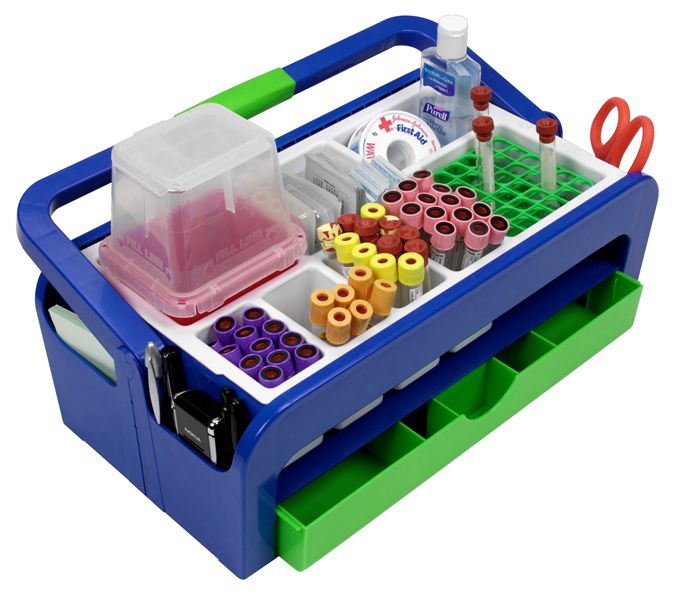Master Phlebotomy and EKG Skills: Essential training for Healthcare Success
In todayS dynamic healthcare environment,the ability to perform accurate phlebotomy and electrocardiogram (EKG/ECG) procedures is crucial for medical professionals. Whether you’re a burgeoning medical assistant, a nursing student, or a seasoned healthcare worker seeking to expand your skills, mastering these technical competencies can substantially enhance your career prospects. This comprehensive guide explores the importance of phlebotomy and EKG training, practical tips for beginners, the benefits of acquiring these skills, and real-world case studies demonstrating their vital role in patient care.
Why Are Phlebotomy and EKG Skills Essential in Healthcare?
Phlebotomy and EKG procedures are foundational components of diagnostic medicine. They enable healthcare providers to gather invaluable details about a patient’s health status, guiding treatment decisions and improving outcomes.Here’s why mastering these skills is indispensable:
- Accurate Diagnoses: Precise blood sampling and EKG readings are critical for diagnosing conditions like anemia, infections, cardiac arrhythmias, and more.
- Enhanced Patient Care: Skilled phlebotomists and EKG technicians reduce patient discomfort, minimize errors, and foster trust.
- Career Advancement: Certification in these areas opens doors to roles such as medical assistants, cardiovascular technologists, or specialized healthcare technicians.
- Operational Efficiency: Proficiency ensures smoother clinic workflows, reducing waiting times and increasing patient throughput.
Key Phlebotomy Skills You Must Master
Phlebotomy involves more than just drawing blood; it requires technical mastery,patient dialogue,and adherence to safety protocols. essential skills include:
1. Proper Blood Collection Technique
- Selecting the right venipuncture site
- Using appropriate needles and collection tubes
- Maintaining aseptic technique to prevent infections
2. Patient Readiness and Comfort
- Explaining the procedure clearly
- Ensuring patient relaxation to prevent fainting
- Handling anxious or difficult patients tactfully
3. Proper labeling and handling of Specimens
- Correctly labeling samples to prevent mix-ups
- Handling specimens carefully to preserve integrity
4.Safety and infection Control
- Using gloves and protective gear diligently
- Disposing of sharps and contaminated materials properly
Essential EKG Skills for Healthcare Professionals
Performing and interpreting EKGs require technical expertise and understanding of cardiac physiology. Core skills include:
1. Proper Placement of EKG Electrodes
- Knowing anatomical landmarks
- Applying electrodes securely without causing discomfort
2. Accurate EKG Recording
- Ensuring a clean, artifact-free tracing
- Adjusting settings correctly for each patient
3. Recognizing Cardiac Abnormalities
- Identifying arrhythmias like atrial fibrillation or ventricular tachycardia
- Monitoring ST segments, wave formations, and intervals
4. Troubleshooting and Maintenance
- Deterring interference and artifacts
- Maintaining EKG equipment properly
Benefits of Mastering Phlebotomy and EKG Skills
| Benefit | Impact |
|---|---|
| Improved Patient Outcomes | Accurate test results lead to better diagnoses and treatments. |
| Career Growth | Specialized skills enhance employability and specialization opportunities. |
| Increased Confidence | Proficiency reduces errors and builds trust with patients and colleagues. |
| Operational Efficiency | Skilled technicians facilitate faster results and smoother clinic workflows. |
Practical Tips to Excel in Phlebotomy and EKG
- Invest in Quality Training: Enroll in accredited courses that combine theoretical learning with hands-on practice.
- Practice Regularly: Repeat techniques on friends, mannequins, or during internships to build confidence.
- Maintain Proper Hygiene: Always observe aseptic techniques and safety protocols.
- Stay Updated: Keep abreast of new equipment, standards, and best practices through workshops and continuing education.
- Develop Soft Skills: Building rapport with patients eases procedures and reduces anxiety.
Real-World Case Study: Impact of Skilled Phlebotomy and EKG Performance
| Case | Outcome |
|---|---|
| A patient with suspected arrhythmia needed an urgent EKG. | The technician accurately performed the EKG, revealing atrial fibrillation, enabling immediate treatment. |
| A diabetic patient required blood tests for glucose levels. | Proper venipuncture minimized discomfort, leading to patient satisfaction and reliable results. |
| Clinic faced delays due to improper specimen handling. | Training in specimen labeling and handling reduced errors and improved workflow efficiency. |
First-Hand Experience: Why Hands-On Practice Matters
During my training as a healthcare assistant, I found that practicing phlebotomy and EKG on real patients significantly boosted my confidence. Initially,I struggled with finding veins and placing electrodes correctly. However, consistent practice under supervised settings allowed me to refine my technique, reduce patient discomfort, and deliver accurate results. This hands-on approach is crucial for anyone looking to excel in healthcare roles that rely on these essential skills.
Conclusion
Mastering phlebotomy and EKG skills is more than just a requirement; it’s a pathway to providing high-quality patient care and advancing your healthcare career. Through dedicated training, consistent practice, and a commitment to safety and professionalism, you can develop the proficiency needed to perform these procedures confidently and accurately. Whether you’re starting your healthcare journey or seeking to enhance your existing skills, investing in phlebotomy and EKG training is a wise move towards achieving healthcare success.
ready to take your healthcare career to the next level? Enroll in accredited courses today and become a trusted expert in phlebotomy and EKG procedures!
